The flames that destroyed her family home in January’s fires in Los Angeles were barely out when Ade Lahey began to be targeted by real estate speculators.
“Got a pretty disturbing phone call of a woman who called to see if we were selling and we immediately told her, ‘No’, and hung up,” the 30-year-old says.
“It’s unbelievable how quick they’re on it.”
More calls followed. “Yeah, they’re trying,” she adds.
The Laheys’ four-bedroom home in the suburb of Altadena is worth about $US1.14 million ($1.89 million), according to estimates, but Ade’s sister Kiri said would-be investors were offering them a fraction of that.
“They’re like, ‘Oh, you want 200,000 for your property? You want 3, 400,000?'” Kiri says.
“We’re trying to stave that off as much as possible.”
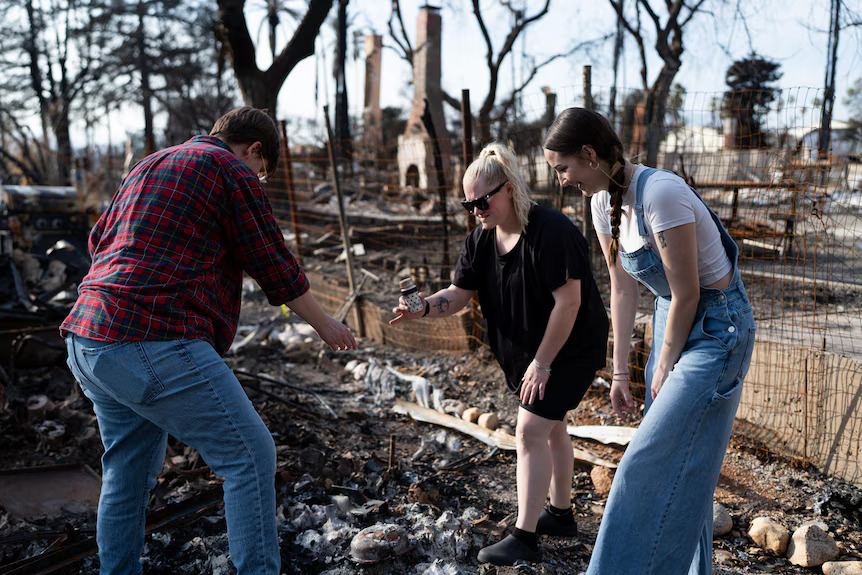
In January, state governor Gavin Newsom signed an executive order making it a crime to make unsolicited, undervalued offers to property owners in the hardest-hit areas.
The attempt to protect residents from “predatory land speculators” was modelled on a similar order issued in the wake of the 2023 fires that devastated the historic town of Lahaina in Hawaii.
“As families mourn, the last thing they need is greedy speculators taking advantage of their pain,” Mr Newsom said at the time.
But three months on from the fires, fears persist in Altadena that the neighbourhood that eventually rises from the ashes could bear little resemblance to the one they lost.
Altadena ‘not for sale’
Thirty people are now confirmed to have died in the Eaton and Palisades fires, the largest of multiple blazes that erupted in Los Angeles beginning on January 7.
They were the most destructive in southern California’s history. Sixteen thousand structures were lost.
It was the Eaton fire that tore through Altadena, a residential community in the foothills of the San Gabriel Mountains to LA’s north.
For many who lost their homes here, the decision now is whether to cash in and start again elsewhere, or commit to the long process of rebuilding.
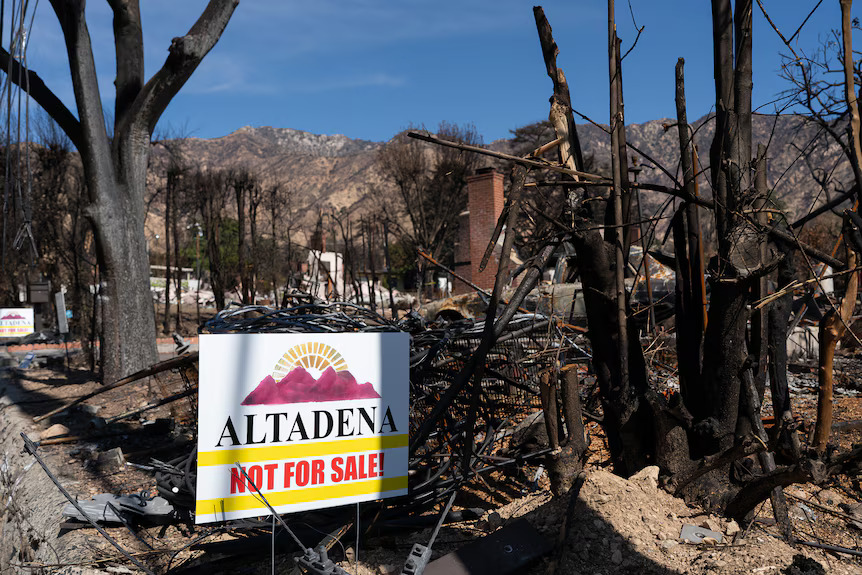
All over town, “Altadena strong” and “Altadena not for sale” signs are dotted throughout the ruins.
There’s a lot of community spirit, but there’s fear and distrust, too.
“Owner is on site and armed” reads one handwritten sign on the gate of a home that survived the inferno.
“We are home, we are armed, we will shoot,” reads another.
Some in the fire-ravaged community are calling it quits.
Plots of land where homes once stood are being advertised anywhere from around $US400,000 up to around $US1 million.
The sales pitches can read like dark humour.
“This spacious, uncleared lot now offers a blank canvas for your vision,” one states.
Acknowledging that the previous home was lost to fire, the prospective buyers are told the land now offers “endless possibilities for the future” or “an inspired new chapter”.
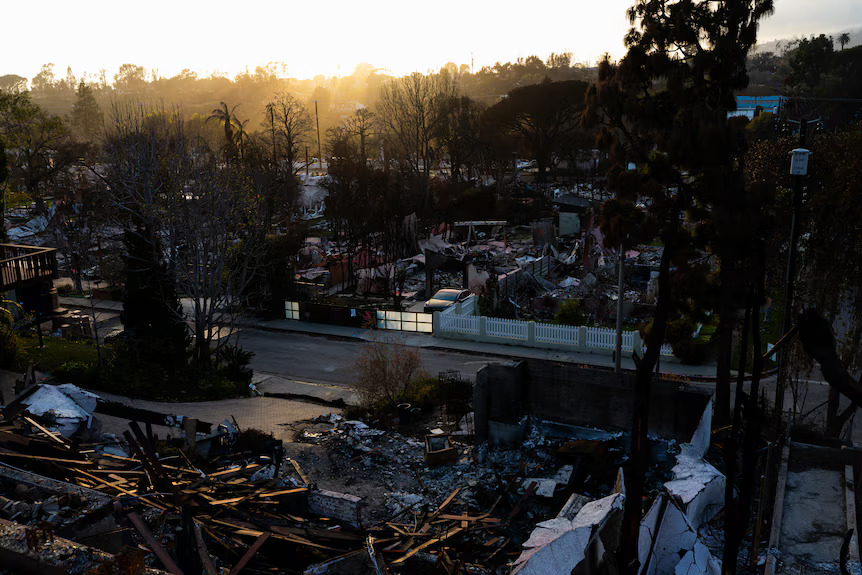
There’s often no on-site inspection of the land, with plots listed as “Drive-by only”.
With real estate speculators circling and lots going up for sale, Steven Scipio is worried about what it might mean for Altadena’s future.
He wants it to be rebuilt as close as possible to what it was before the fires.
The 47-year-old takes us on a drive in the neighbourhood where he was born and raised, pointing out homes that he says would have been worth well over a million dollars before the fires.
“Now they’re going for $US400,000,” he says.
Around 20 per cent of Altadena’s population is African American and the majority own their own homes.
Historically, many settled here when discriminatory lending practices known as “red-lining” forced them out of other areas.
Four generations of Steven Scipio’s family have found a home here.
“This is truly a place that was just far enough away from all the craziness of downtown Los Angeles and the hustle and bustle where it actually felt like a town.”
Steven says Altadena will need the support of local authorities to ensure it doesn’t totally lose its character.
“Just don’t change the codes and be money-hungry and tell us that we can build hotels to the roof, to the skies,” he says.
“Because then you’re going to change everything about this community. And you might as well call it downtown LA.”
Credit : ABC News

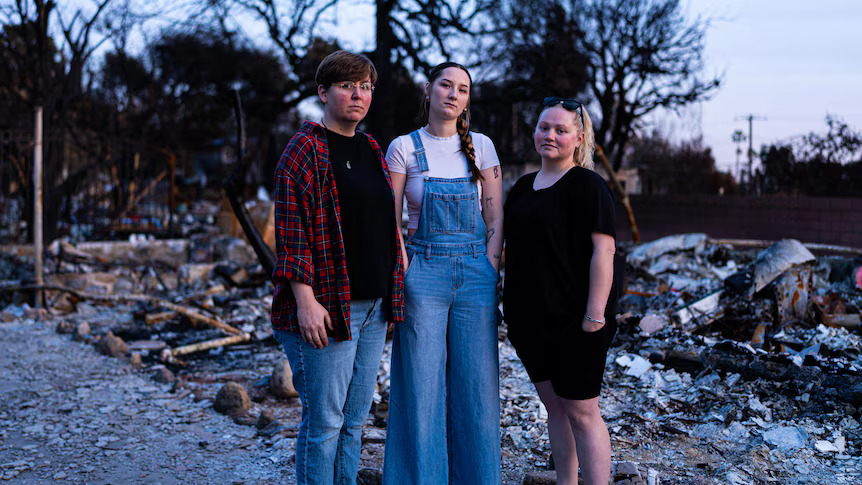

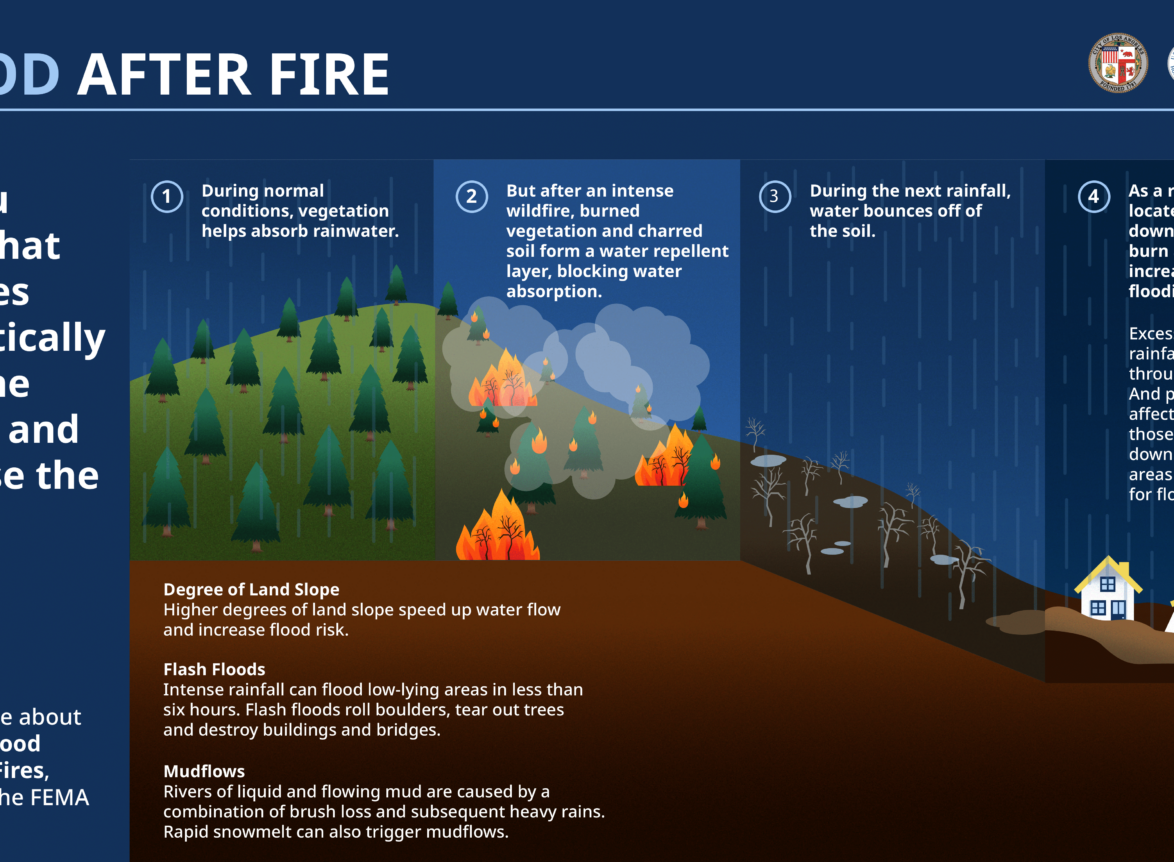
Leave a Comment
Your email address will not be published. Required fields are marked *